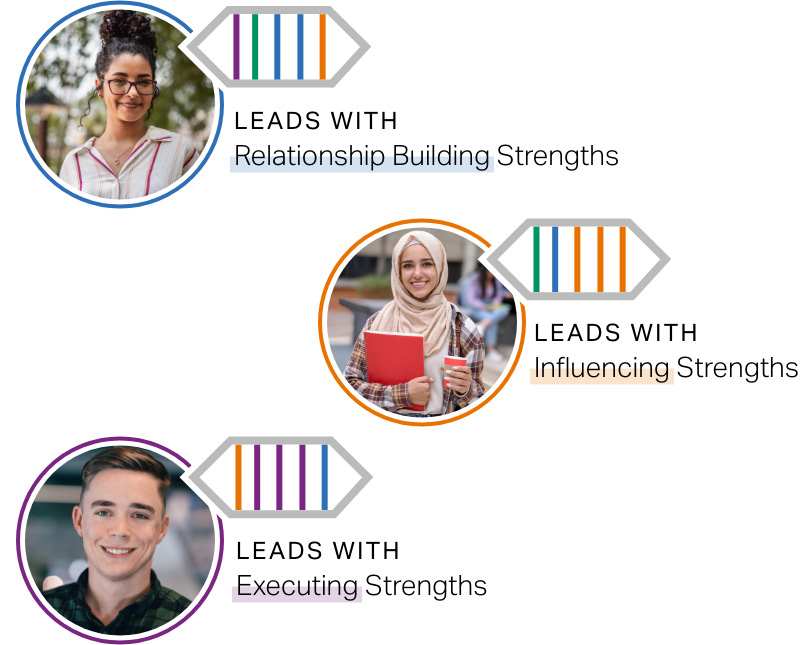Create Thriving Students
Prepare students for a future as unique as they are with CliftonStrengths® for Students.
For Students
Live your best life.
For Schools
Build a strengths-based institution.
Give Students the Best Chance to Succeed
The CliftonStrengths for Students report gives students the confidence, clarity, empowerment and self-awareness they need to succeed in school and in life.
When a student understands what they do best, it gives them a leg up -- helping them thrive academically, socially and in their future career.
Get started now by helping students discover their unique strengths.

Using Strengths to Build a Better Student Experience
More than 700,000 students discover and develop their strengths each year, because more than 1,000 colleges and universities know the value of a strengths-based education.

Furman University's Strengths-Based Approach to Education

How Wellbeing Is Advancing the Volunteer Spirit at UT

Purdue's Strengths-Based Approach to Thriving Students

How Virginia Tech Uses CliftonStrengths for Students

The Path to Becoming a Strengths-Based Campus: Kansas State
CliftonStrengths for Schools
Ready to grow strengths for your institution?
Learn more about the Don Clifton Strengths for Students Award Winners, like the schools featured below.
These institutions are using strengths to:
And it's not just for students. Educators and staff who know what they do best and develop their own strengths are more engaged at work and better equipped to foster transformational learning experiences.
Unlock strengths for your faculty, staff and more.
Strengths Is Just the Beginning

Gallup offers many additional strengths-focused education initiatives for all types of schools, universities, institutions and districts -- including special pricing and the opportunity to use our Gallup Access platform. If you're interested in learning more, contact us today.
